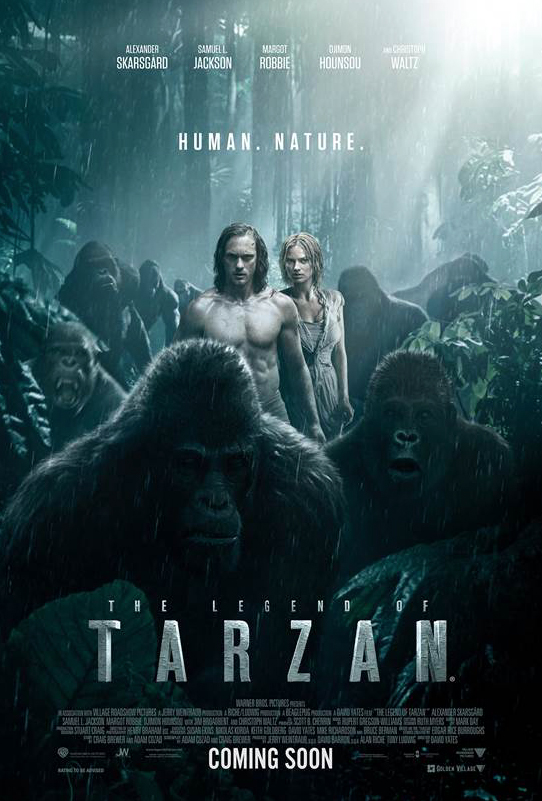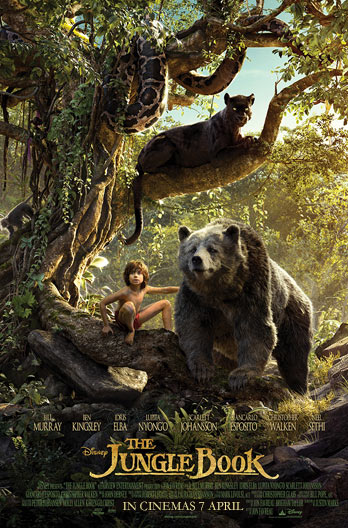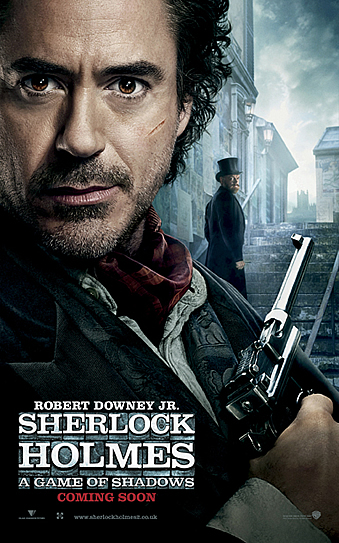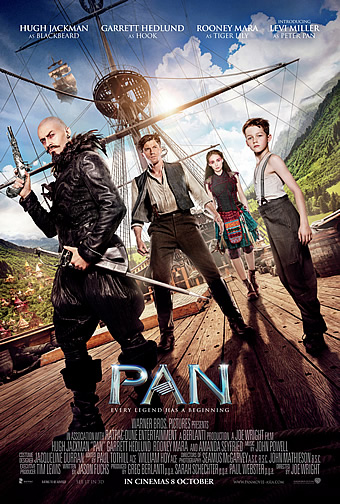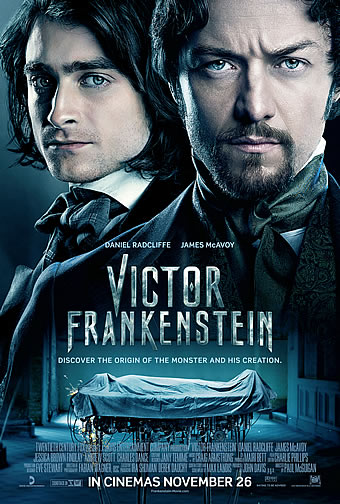THE LEGEND OF TARZAN (2016)
Genre: Adventure/Action
Director: David Yates
Cast: Alexander Skarsgard, Margot Robbie, Christoph Waltz, Samuel L. Jackson, Djimon Hounsou, Jim Broadbent
Runtime: 1 hr 49 mins
Rating: PG13 (Violence)
Released By: Golden Village Pictures
Official Website: http://legendoftarzan.com
Opening Day: 30 June 2016
Synopsis: From Warner Bros. Pictures and Village Roadshow Pictures comes the action adventure “The Legend of Tarzan,” starring Alexander Skarsgård (HBO’s “True Blood”) as the legendary character created by Edgar Rice Burroughs. It has been years since the man once known as Tarzan (Skarsgård) left the jungles of Africa behind for a gentrified life as John Clayton III, Lord Greystoke, with his beloved wife, Jane (Margot Robbie) at his side. Now, he has been invited back to the Congo to serve as a trade emissary of Parliament, unaware that he is a pawn in a deadly convergence of greed and revenge, masterminded by the Belgian, Captain Leon Rom (Christoph Waltz). But those behind the murderous plot have no idea what they are about to unleash.
Movie Review:
As enduring as he may have been through the history of cinema as well as in literature, Edgar Rice Burroughs’ muscle-bound British lord raised by apes in the African jungle, who grows up to fall in love with an American woman named Jane, is undeniably antiquated in this day and age. Not only would its depiction of British colonialism and tribal Africans seem utterly archaic, the very fact that it conjures the notion of the white man’s burden is cultural poison, which pretty much explains why the most successful take on the character in recent times has been the late-90s animation of the same name from Disney. And yet, for once and future ‘Harry Potter’ wizard David Yates to attempt his take on Tarzan inspires some measure of confidence that there remains a place for the Lord of the Apes in contemporary filmmaking.
Sure enough, Yates and his screenwriting duo of Adam Cozad and Craig Brewer start off well enough with a fresh narrative that begins with Tarzan as a now domesticated gentleman settled in his family’s Greystoke Manor and happily married to his Jane. That period of domestic bliss is interrupted when he is summoned by the Prime Minister (Jim Broadbent) to accept an invitation by King Leopold of Belgium to revisit the Congo and serve as trade emissary for the British, an offer he refuses until the American statesman George Washington Williams (Samuel L. Jackson) persuades him to make the trip to investigate the latter’s suspicions of slavery. Williams’ character and motivations are no coincidence – his real-life namesake was a decorated Civil War soldier who had travelled to King Leopold’s Congo Free State and written about the exploitation of the African people by the Belgian colony.
That is but one adjustment that Yates makes to his tale in order to shake off the character’s imperialistic shadow. Rather than have him lord over the local tribe he once spent time with, Yates positions Tarzan as their equal; later on, Tarzan will also come to acknowledge his dishonourable deed of having taken the life of a native from another tribe, which has in part contributed to his existing predicament. No sooner has he, Jane and Williams arrived in Africa does he find himself the target of a bunch of mercenaries led by King Leopold’s representative Leon Rom (Christoph Waltz), who has made a deal with a vengeful tribal chief (Djimon Hounsou) in exchange for a fortune in legendary diamonds for his otherwise bankrupt sovereign.
Tarzan narrowly escapes the kidnap, but Jane is not quite so lucky, and so the former spends the rest of his time reuniting with former friends and reconciliating with former foes while running and swinging through the dense African jungle in pursuit of the steamer on which Leon has Jane held captive. That setup is surprisingly engaging, though it does go back and forth a little too much to establish Tarzan’s backstory from the source material (i.e. the death of his mother as an infant, his father’s death at the hands of the leader of the ape tribe by whom he is adopted, and his first encounter with Jane where he saves her from the same ferocious ape leader); alas, even if it does get off to a good swing, this Tarzan ultimately falls off the vine when it is more than halfway through.
We’re not talking about Jackson’s somewhat anachronistic sidekick act, which frankly we thought was a genuinely fun foil next to Tarzan’s masculinity. We’re not talking either about Waltz’s umpteenth erudite villain act, which despite being niftily armed with deadly rosary made from Madagascar spider silk, is getting too familiar and tired. And certainly, we have no complaints about Margot Robbie’s atypically feisty Jane, who brings nerve and bravado to her damsel-in-distress role. Oh no, what takes Tarzan down is how hasty he seems to get to his inevitable happy ending, so frenetic to the point that it trivialises his Alpha-male conflict with the ape leader whom he has a mano-a-mano with, the grudge that he was responsible for with Hounsou’s Chief Mbonga, as well as the danger that he faces confronting Rom and his men out-numbered and out-gunned.
That his Tarzan hardly registers isn’t Alexander Skarsgård’s fault though; in fact, the ‘True Blood’ hunk is probably one of the best, if not the best, Tarzan we have seen, not only in terms of his incredibly ripped physique but also of how he emotes his character’s feral core in the earlier scenes. Yet Skarsgård is underserved by a mysterious urgency to get things over and done with – whether to ensure that the summer audience doesn’t get bored or because Yates is too eager to move on to his next ‘Harry Potter’ venture – which only further leaves us in the cold as it rushes from one CG-enhanced setpiece to another. As well-filmed as these are – including an early one where Tarzan leads the natives to literally swing on board a moving train and the climactic centrepiece featuring a wildebeest stampede – they aren’t quite as thrilling without a deeper emotional connection with the titular character himself.
It is also somewhat unfortunate that ‘The Legend of Tarzan’ arrives in the wake of Disney’s ‘The Jungle Book’, which represented the zenith of modern-day CG in portraying both the lush jungle environment as well as its inhabitants within. In comparison, the CG here comes off oddly alienating at best and subpar at worst, especially during the scenes where Tarzan is swinging through the trees at full speed. Yet what this rebooted tale of Tarzan really lacks is spirit and poignance, without which not even the character’s famous jungle cry makes him resonate. Not all is lost of course, but given Yates’ pedigree as well as a promising first half, we expect this Tarzan to come out swinging – rather than limping – to its finish.
Movie Rating:



(Better than its antiquated nature suggests, this contemporary re-imagining of Edgar Rice Burroughs’ classic character nevertheless falls off from a promising first half by choosing CG-enhanced spectacle and thrill over genuine character pathos and poignance)
Review by Gabriel Chong
You might also like:
